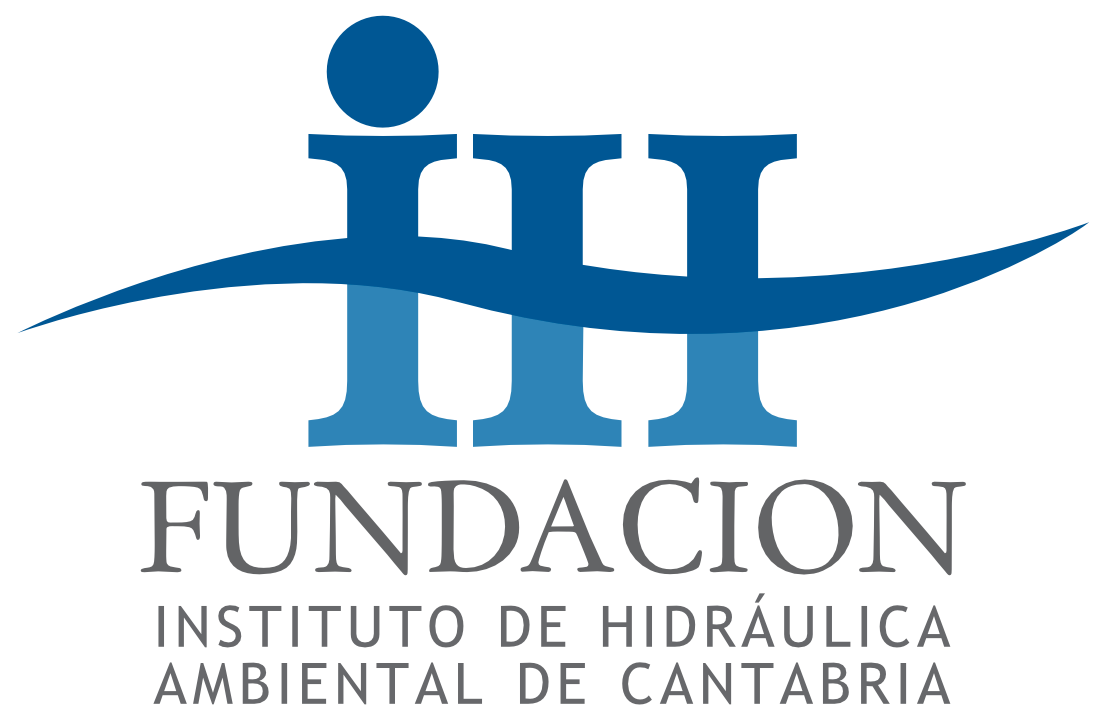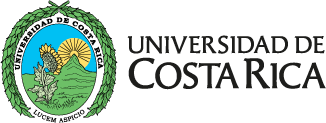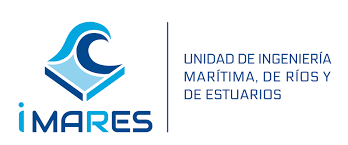IHCantabria is promoting environmental sustainability in Costa Rica with the project “Marinas Limpias CR”
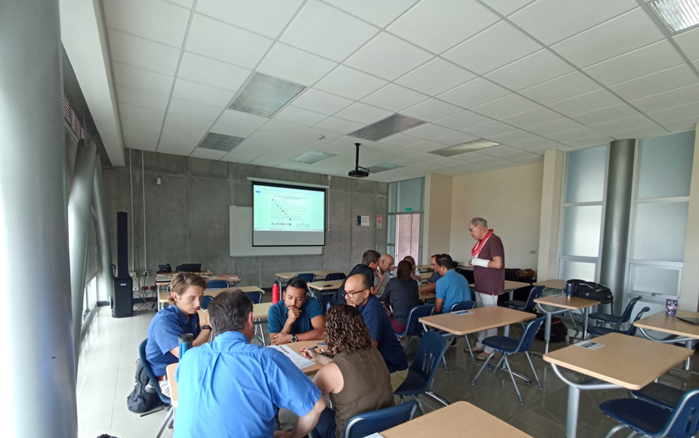
Attendees at one of the workshops held yesterday, within the framework of the “Marinas Limpias CR” project, in which the Director of Education & Capacity Building of IHCantabria, Jose A. Juanes de la Peña (standing, in the photo) have participated
Within the framework of this project, research staff from IHCantabria participate in meetings and workshops at the University of Costa Rica, and meet with the Spanish ambassador, Eva Martínez Sánchez, to promote new avenues of collaboration
The Director of Teaching and Training of the Institute of Environmental Hydraulics of the University of Cantabria(IHCantabria), José A. Juanes de la Peña, held a meeting today with the Spanish Ambassador in San José de Costa Rica, Eva Martínez Sánchez, together with representatives of the Spanish Cooperation in Costa Rica and the University of Costa Rica (UCR), as part of his visit to this Central American country, to participate in meetings and workshops related to the project “Marinas Limpias CR”. The meeting was also attended by researcher Bárbara Ondiviela, member of the Coastal Ecosystems group at IHCantabria, and UCR Professor Felipe Calleja, who is the project coordinator and a graduate of the IH2O Doctoral Program at the University of Cantabria (UC).
In this Central American country, coastal tourism plays a crucial role in its economy and national identity, so it is essential to ensure the environmental management of marinas and nautical activities. The “Marinas Limpias CR” project, led by the Maritime, Rivers and Estuaries Engineering Unit of the University of Costa Rica (IMARES-UCR) and financed by the External Cooperation Fund 2022 of the Vice Rector’s Office for Research of the University of Costa Rica, offers to contribute to the promotion of environmental sustainability and responsible tourism development in Costa Rica, through international collaboration.
The main objective of this project is to analyze and manage the risk to water quality in Costa Rica’s marinas; its importance lies in the integrated approach it proposes. Representatives of the Maritime, River and Estuarine Engineering Unit (IMARES-UCR) of the University of Costa Rica, the Interinstitutional Commission of Marinas and Tourist Berths (CIMAT) -which acts as a national entity and liaison with the marinas of Costa Rica-, the Coastal Observation and Forecasting System of the Balearic Islands (SOCIB) and IHCantabria are participating in the development of this project.
The main beneficiaries of the project are the managers of national marinas, who will receive specific recommendations to improve the environmental management of their facilities and ensure a safe and healthy environment for visitors and marine life. Another beneficiary of the project is CIMAT, the ultimate recipient of specific tools and protocols to monitor and maintain water quality in marinas over time.
The development of this project includes three stages. The first is focused on knowledge transfer, in which experts from IHCantabria and SOCIB have shared this week their experience and knowledge with port managers, local administrations and NGOs. In the second stage, a diagnosis will be made on water quality and associated risks in different marinas, leading to the third and final phase of the project in which management measures will be formulated, which will be reflected in a guide of good practices.
The establishment of this international collaboration network between IMARES-UCR, CIMAT, IHCantabria and SOCIB will lay the groundwork for future research and environmental management initiatives in the maritime sector. It is also expected that the results of this project will contribute to the fulfillment of Sustainable Development Goal 6: Clean Water and Sanitation.
Therefore, the “Marinas Limpias CR” project reflects Costa Rica’s commitment to environmental protection and sustainable tourism development, while demonstrating the effectiveness of collaboration between academic, governmental and scientific institutions to address some environmental challenges.
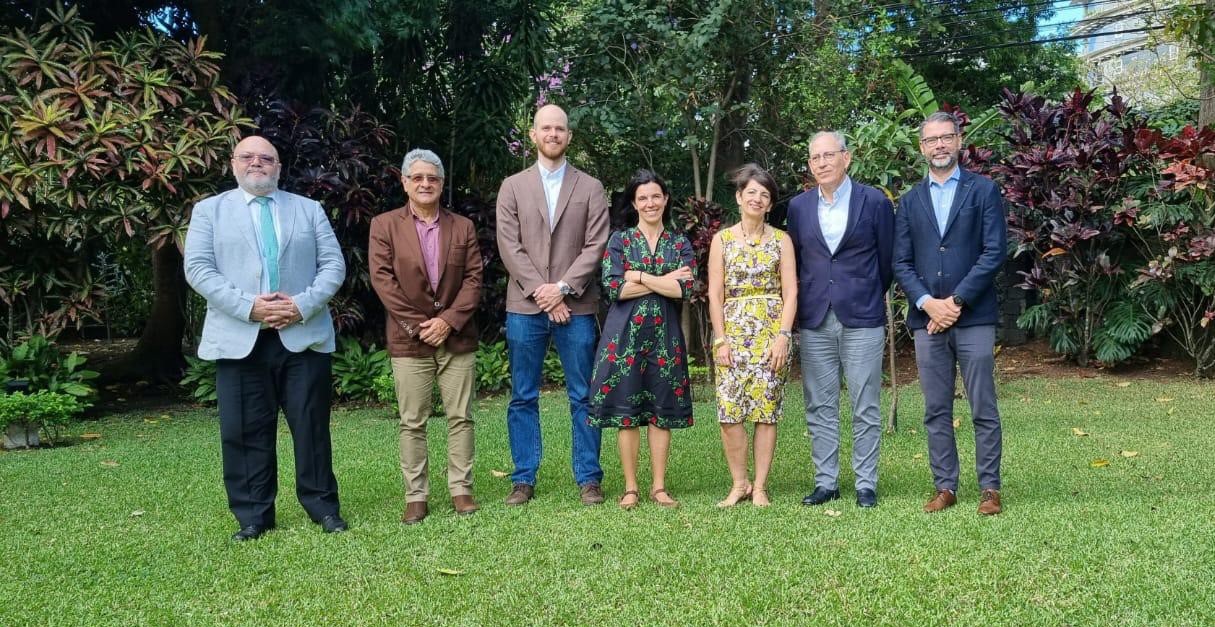
From left to right: Rafael H. García, General Coordinator of the Spanish Cooperation in Costa Rica; Álvaro Morales Ramírez, Director of the Center for Research in Marine Sciences and Limnology (CIMAR) of the UCR; Felipe Calleja Apéstegui, Professor at IMARES-UCR; Bárbara Ondiviela, researcher at IHCantabria; Eva Martínez Sánchez, Spanish Ambassador to Costa Rica, and Orlando Arrieta Orozco, Dean of the Faculty of Engineering of the UCR
